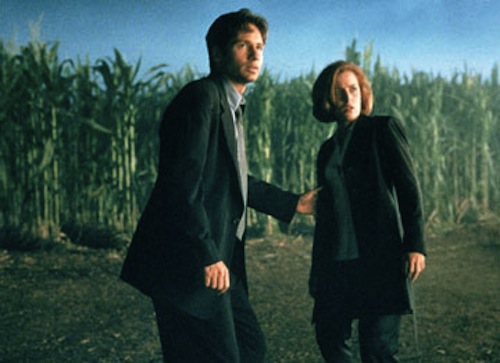Ah, the future—a glittering world of flying cars, helpful robots and weird Singaporean dudes who will sell you a frozen eyeball. At least that’s what I always envisioned, but as the future keeps getting closer (2025,) it seems more likely to be defined by floods of corporate money and amazing technological progress in the field of explaining why we can’t do anything about it. The titanic forces we once imagined wielding threaten to wield us, as the ability to extract resources from anywhere on earth and magically replicate and distribute cultural products boils down to bottled water and rap albums that you can’t loan to your friends. It’s a digital world, and a democratized world, and possibly even a virtual world, but the money is still real. And what is money if not a force completely beyond our control that has existed forever apart from human whims? Today’s link roundup is all about the future, near and far, humorous and scary, greedy and greedy. So put on your shiny, buttonless shirt, affix your breathing apparatus, and set the DeLorean for 2010: we’re going sideways to the future!
First, the very near future: early November. I don’t know if you’ve heard this, but there’s going to be an election soon, which means it’s time for the Republican Party’s biennial obsession with voter fraud. Not content to simply get out the vote, they’re urging their constituents to get out and supervise the votes of others. A St. Paul Tea Party group is offering $500 to anyone who gets someone else successfully prosecuted for voter fraud, and across the country members of that august organization “have announced plans to question individual voters at the polls whom they suspect of being ineligible.” I’m sure that suspicion will have nothing to do with age, socioeconomic background or skin color. First of all, the Tea Party is not a fascist organization; they’re just a group of committed patriots who will be standing outside polling places making sure other people can prove they have a right to vote. Second, between 2002 and 2005, 55 people were convicted of election fraud. Clearly, those 18 false votes a year have made a mockery of our democratic process.
Meanwhile, in things that are actually a problem, campaign spending by people who are not running for office has eclipsed $250 million. This flood of money is largely attributable to the Citizens United vs. FEC Supreme Court decision, which held that limiting corporations’ spending on political advertisements is an unconstitutional violation of their First Amendment rights. The Hill has rounded up an impressive number of experts to discuss what to do about that, only one of whom has the guts to point out that it’s ridiculous that a corporation is considered a natural citizen under US law. All of them essentially agree that there needs to be some combination of campaign finance reform and the DISCLOSE Act.
You remember the DISCLOSE Act, right? The legislation requiring campaign advertisers to disclose where their money comes from, and how much of it they’re getting? The law that virtually everyone agrees is extremely important to the future of fair elections, and which Harry Reid said Congress would take up, maybe, once the upcoming election is over? It’s leadership like that that makes for terrible governance but great satire. I love pretty much everything about this Onion article, but maybe I love the blunt anger behind this quote best: “‘There’s a great deal on the line, and we know it isn’t going to be easy for us,’ said Senate Majority Leader Harry Reid (D-NV), speaking from the steps of the Capitol. ‘But if we suffer defeat, we will do so knowing we cowered away from absolutely anything we produced that was even remotely progressive or valuable in any way.'” I hope someone in Harry Reid’s office has the guts to explain to him what the Onion is, probably after the midterms.
And the comedians shall lead them. David Wong, author of the weirdly compelling horror-comedy novel John Dies At the End, has given us this weirdly compelling economics-comedy essay about the future of consumer culture. Because he works at Cracked, Wong thinks the future will be defined by FARTS: Forced ARTificial Scarcity. He points out that digital techniques of replication and distribution have made many products—books, music, pictures of boobs on the internet—post-scarcity commodities. It costs nothing to make a copy of a digital book and send it across the internet, but the fundamental mechanisms of our economy have led digital book makers to create artificial barriers to production and distribution so they can keep turning a profit. Wong explains it better than I do, so read on and be pissed. Don’t show this blog post to any of your friends, though, or you have to mail me a dollar.





If your interested in the economics of free, you must read Mike Masnick at Techdirt. I think in response to David Wong he’d point out that some things will always be scarce, like concerts, access to the artist, or memorabilia celebrating the art.
http://www.techdirt.com/
Oh god, I mean you’re. Fuck, forgive me all.